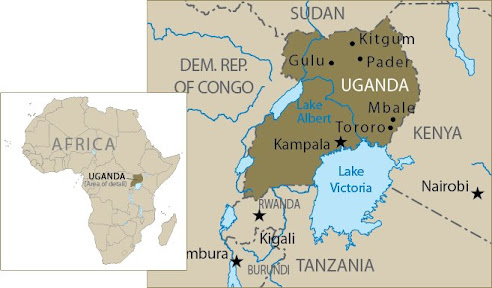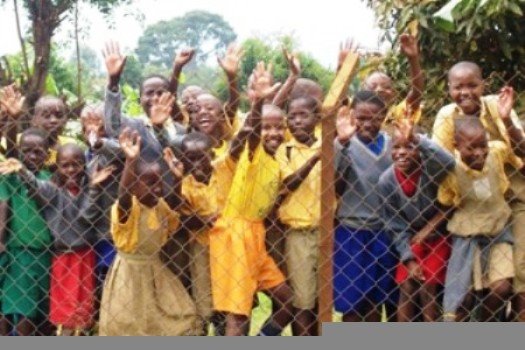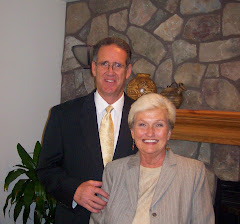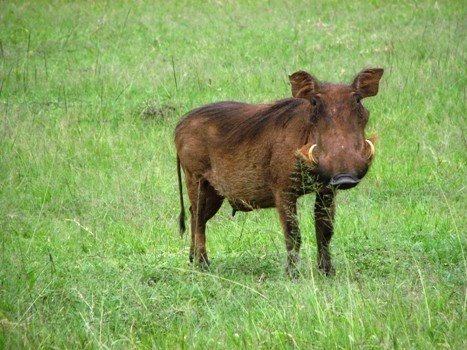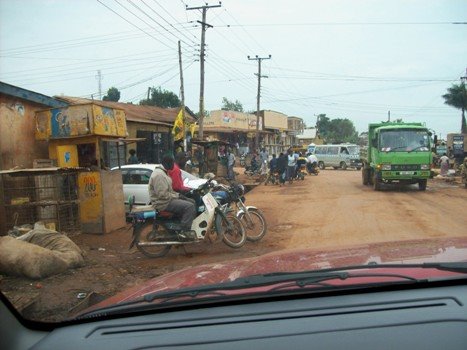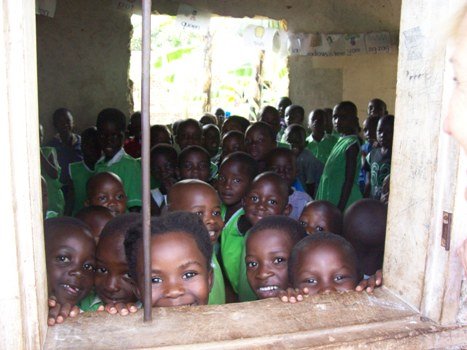
The “road” to the villages of Okude and Otubet had some interesting twists and turns.

The directions to the village could have included instructions like, “drive through the grass to the third hut, go between the drying rack and cassava and turn right behind the mango tree”. Following Minister Ecweru’s trusty driver, Job we were able to find our destinations.


We went to isolated villages where the World Food Program and Red Cross did not go. These were villages that were over-run by Joseph Kony’s Lord’s Resistance Army in 1994. It was Ecweru who commanded the army which drove them out of Uganda. He is quite the local hero. Women were waiting 1/4 mile from their village with long scarves waving and trilling when we came. He got out of his truck and was hugged and cheered by the women. When we got out of our truck, we were engulfed by scarves, hugs and many old women for traditional greetings. We felt VERY welcome. The people like to tell about the war; pointing out places where battles were fought and villagers or rebels were killed.


Between the District center and the two villages, there were a total of 7,000 people. With Minister Ecweru, we distributed 2,000 hoes, 2,200 lbs. of powdered milk, 3,700 lbs. of maize flour, 3,300 lbs. of beans, 4,000 lbs. of cowpeas, 500 bags of potato vines and soap.



There were many children in the villages as usual. Because of their condition, they were not as outgoing and friendly as usual. In addition, we were in a very remote area where they were not used to seeing “Muzungus”.

These kids have been through some really hard times. However, Elaine soon got at least some of them smiling and counting.

In areas like this we are trying to promote sack gardening as a back-up food supply to gardens. This small sack garden contains 18 cabbages and 2 tomato plants. It can be done in a very small area; even in a house in town.

As we were leaving the village of Otubet, this man wanted me to take his “portrait”.


On the way back to Soroti we stopped at this field where some of the cowpeas and cassava we distributed in May had been planted. In spite of the drought, a very nice crop had been grown. Both of these crops grow quickly and are very drought resistant. In the areas where these crops had been planted the people were in much better condition and were strong enough to work in the gardens.

The government has encouraged the building of family granaries. If there is a good harvest, storing food can prevent a repeat of the same cycle next year.
The timing of this trip could not have been better. It rained the 2 days before we arrived and there was a massive rainstorm the last night we were there. Hopefully the food we took will supply the energy needed to get the crops planted in order to take advantage of the moisture. Late August and September are the “rains” in Uganda and we are keeping our fingers crossed for a favorable weather pattern this year.

Hopefully, better days are ahead.
